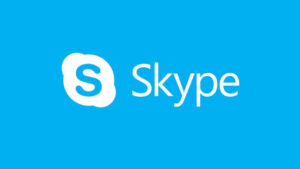A significant chapter in the history of digital online communication has closed.

Microsoft has officially shut down the Skype platform permanently as of May 5, 2025, retiring a service that was once a pioneer in combining video calls, voice calls, and instant messaging over the internet. After 22 years of connecting people across the globe, Skype is making way for Microsoft Teams, the company’s more modern communication and collaboration tool.
Skype’s Pioneering Role in Digital Communication
Launched in 2003, Skype emerged during a time when international phone calls were often expensive, and real-time video calls between individuals were not the ubiquitous, easily accessible feature they are today. Skype was revolutionary for offering free or low-cost voice and video calls over the internet, alongside instant messaging capabilities, all within a single application.
Its user-friendly interface and core functionalities quickly made it a go-to platform for families living far apart, friends reconnecting, and even for professional or educational interactions like conducting remote classes. At its peak, Skype boasted over 300 million users worldwide, solidifying its status as a classic and seemingly permanent fixture on computer desktops.
The Rise of Competition
In the years following Skype’s launch and initial success, the landscape of online communication evolved rapidly and became increasingly competitive. Numerous new platforms entered the market, many offering similar core services but often with more streamlined interfaces, better mobile integration, or specialized features tailored to specific user groups.
Competitors like Zoom, Google Meet, WhatsApp, Facebook Messenger, and Apple’s FaceTime gained immense popularity, each carving out significant market share. While Skype did introduce features like group video calls (contrary to a common misconception, group calling was a feature, though perhaps less robust than modern platforms), its user experience, interface updates, and feature set struggled to keep pace with the innovation and integration offered by rivals.
Why Skype Was Retired
The primary reason behind the decision to shut down Skype was its declining usage over the past decade. As dozens of newer, more modern platforms emerged, offering comparable (or perceived as superior) services with slicker designs and tighter integration with mobile ecosystems and social networks, Skype’s user base gradually migrated elsewhere. Competition became a major threat, and the fast-paced nature of the digital world meant that Skype fell behind and was unable to regain its dominant position.
Microsoft, which acquired Skype in 2011, eventually shifted its strategic focus to a different communication platform within its portfolio.
Microsoft’s Focus on Teams
Recognizing the changing market dynamics and the success of its newer platform, Microsoft made the strategic decision to consolidate its communication efforts under Microsoft Teams. Initially developed primarily for businesses as a collaboration hub integrating chat, meetings, file storage, and application integration, Teams has also seen development for consumer use.
Microsoft Teams is positioned as a more modern alternative to Skype, offering a broader suite of features beyond just calls and messaging, including integrated calendars, file sharing, collaboration tools, channels, and communities. While Skype had group calling, Teams offers more advanced meeting capabilities, features tailored for larger groups, and deeper integration with other Microsoft 365 services, making it a more comprehensive solution for both professional and personal communication needs in the modern digital environment.
Migration Process for Skype Users
For existing Skype users, Microsoft facilitated a migration process to ease the transition. Users were given the option to export their data, such as chat history and files, before the May 5th shutdown. However, even for those who did not manually export their information, Microsoft has automatically transferred user information and contact lists to the Microsoft Teams platform.
This ensures that users’ contacts and basic data are not lost in the change. Former Skype users are expected to be able to log in to Microsoft Teams using their existing Skype credentials, providing a relatively seamless way to continue connecting with their contacts on the new platform.
The End of an Era: Nostalgia and Cultural Impact
The permanent shutdown of Skype marks more than just the retirement of a piece of software; for many, it signifies the end of a particular era in digital communication. Skype played a significant role in facilitating personal connections across long distances during a transformative period for the internet.
It was instrumental in enabling early forms of remote work and learning, becoming a familiar part of daily online life for a generation, particularly Millennials who grew up with it alongside other early messaging platforms like MSN Messenger (whose own closure was another milestone).
The retirement of Skype can evoke a sense of nostalgia, marking personal growth and the natural progression of technology, much like saying goodbye to beloved tools or items from one’s youth. It highlights how quickly the digital world changes, with even once-dominant platforms eventually making way for newer alternatives.
A New Era for Microsoft Communication
The shutdown of Skype after 22 years underscores the relentless pace of technological evolution and the intense competition in the online communication market. While Skype was a true pioneer that redefined how people connected globally through free video calls and instant messaging, its inability to keep pace with more modern, mobile-integrated, and feature-rich platforms led to its decline.
Microsoft’s decision to retire Skype in favor of Microsoft Teams reflects a strategic consolidation of its communication efforts, focusing on a platform better positioned for the current digital landscape. The end of Skype marks the close of a significant chapter but opens a new one under the banner of Microsoft Teams, carrying forward the legacy of connecting people in an ever-evolving digital world. Thank you, Skype, for the connections you enabled over two decades.







